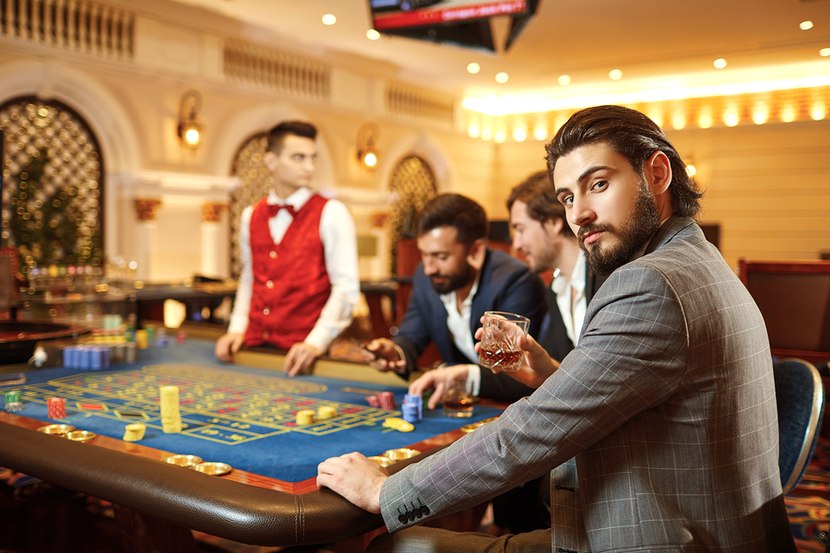
In the world of gambling, where chance and strategy converge, a unique tapestry of beliefs emerges—one that intertwines luck, fate, and the enigmatic nature of casino games. Casinos, bustling with excitement and anticipation, are not just spaces for placing bets; they are also arenas in which superstitions thrive. Ranging from the novice player to the seasoned gambler, these mysterious practices often shape how individuals approach the games they play, holding the belief that their actions can impact the outcome in ways that go beyond mere probability.
When players gather around roulette wheels, blackjack tables, and slot machines, the atmosphere is thick with stories of lucky charms, rituals, and codified behavior that defy logic yet provide a sense of comfort. Whether it’s wearing a specific outfit, following a particular sequence of bets, or even avoiding certain numbers, the attachment to various superstitions reflects a deep-rooted desire to master the uncontrollable. This article delves into the captivating world of casino game superstitions, investigating the beliefs that both entertain and mystify those who dare to play.
Historical Beginnings of Superstitions
Casino games have long been connected with an host of superstitions that trace to ancient societies. The beginnings of these ideas can be associated to humanity’s fundamental wish to manage the random outcomes associated with chance and uncertainty. In ancient civilizations, activities of chance were often linked to ritualistic practices. Gamblers would call upon aid or ask for favor from gods, believing that their actions could influence the outcomes in their benefit. This groundwork laid the basis for the multitude of superstitions that proliferated as gambling evolved over ages. non Gamstop casinos
During the medieval age, betting became a common hobby across Europe, and with it, a rich tapestry of superstitions appeared. Players adopted numerous rituals and charms, believing they could change the outcome of games. The significance of numbers, in particular, emerged to manifest in superstitions pertaining to card games and dice. The number 7 was often considered lucky, while various numbers carried bad connotations. These notions mirrored the cultural contexts of the time, evolving as they passed through generations and changed to new gaming environments.
As casinos appeared in the 17th century, particularly in Italy and France, the atmosphere surrounding betting became imbued in mystery. The growing accessibility of casino games allowed for the dissemination and growth of superstitions among players. Concepts like lucky charms, designated seating positions, and rituals gained prevalence, creating a special culture within casinos. As these traditions continued to thrive, they became fundamental to the character of casino games, illustrating how historical developments and society shape the notions that influence how gamblers connect with luck.
Widespread Gambling Myths
Superstitions surrounding gambling activities are plentiful and diverse, mirroring the dreams and anxieties of players as they engage in chance-based activities. One of the most common beliefs is that specific digits bring luck or misfortune. For example, the digit seven is often seen as a favorable digit, frequently sought after by players looking for a favorable result. Conversely, the number 13 is routinely considered cursed, leading many gamblers to steer clear of it during their gaming sessions.
Another frequent belief relates to practices that gamblers believe can influence their chances. It could be blowing gently on dice before a throw, using a specific gesture to place a bet, or even putting on particular items of clothing, many people feel that these rituals can tilt luck in their favor. These practices offer a feeling of power in an otherwise random environment, strengthening the idea that fortune can be created through personal convictions and habits.
Lastly, the ambiance and vibe of the casino itself adds to superstition. Many players suggest that the presence of specific icons, such as four-leaf clovers or fortunate coins, can enhance their odds of success. Additionally, players might adhere to the notion that winning streaks can be halted by mundane events, such as a person passing by or a accident at the table. The collective atmosphere in a gambling house can amplify these beliefs, creating a shared culture of superstitions that goes beyond single encounters.
Impact of Superstitions on Players
Superstitions play a significant role in the mindset of gamblers, often affecting their actions and decision-making. Numerous gamblers think that fortune can be influenced through different rituals, such as wearing a lucky charm, choosing particular hues, or steering clear of particular digits. This reliance on superstitions can create a feeling of authority in an environment that is inherently unpredictable. Players often feel more confident and engaged when they think that their actions could sway the outcome of a game in their advantage.
The impact of these superstitions extends beyond singular players, affecting the overall atmosphere inside the casino. For example, a player who believes in the luck of a particular slot machine might draw a crowd, as onlookers are fascinated by their apparent success. This collective belief can heighten excitement and create a dynamic environment, leading to an captivating experience even for those who may not necessarily be superstitious. The excitement around specific games can lead to higher participation and extended playing sessions, supporting the casino’s lively social scene.
In some instances, superstitions can lead to harmful effects for players. Depending too heavily on rituals can result in poor gambling decisions, as some may ignore basic strategies in favor of unfounded beliefs. Additionally, the pressure to perform rituals may increase anxiety and tension, detracting from the pleasure of the experience. Ultimately, while superstitions can enhance the excitement of playing casino games, they can also lead to unwise choices that overshadow the fun and entertainment intended in the casino experience.
